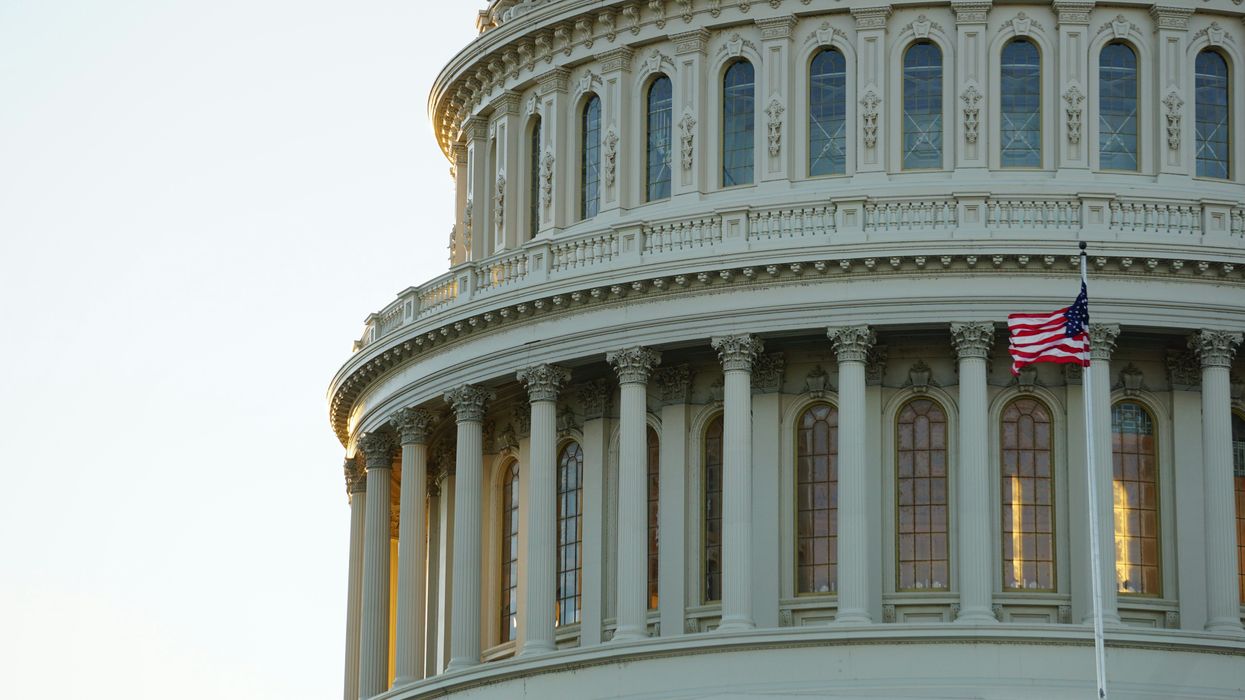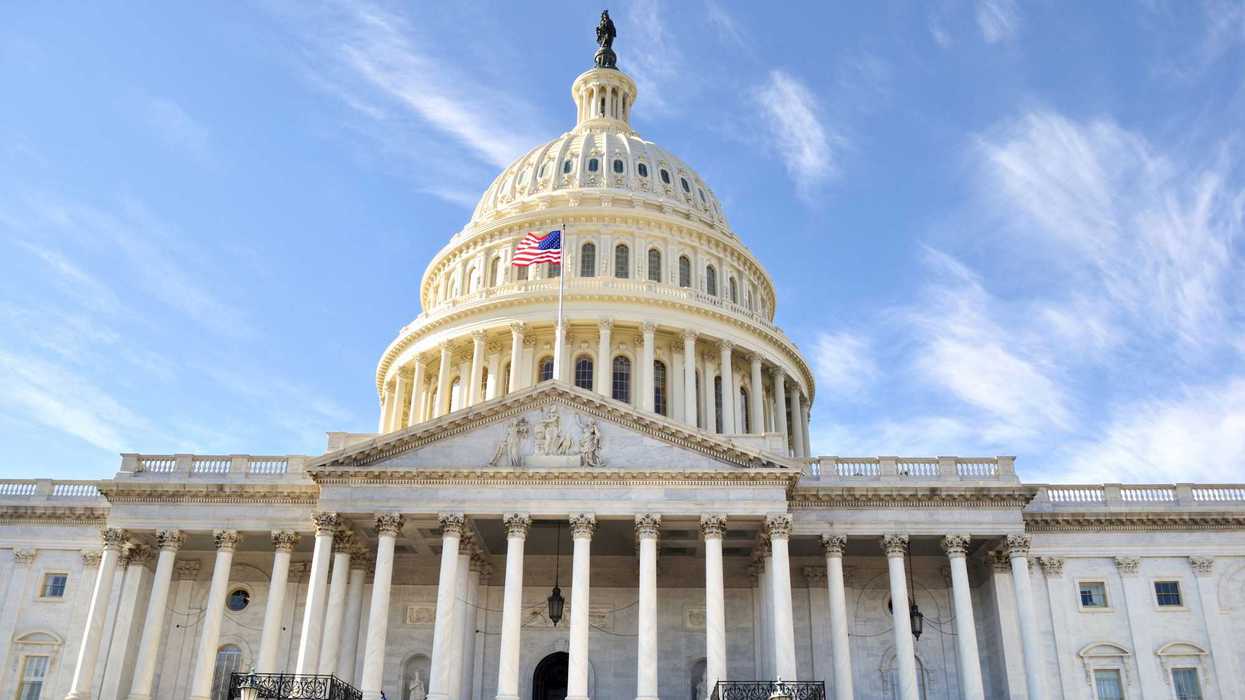One of President Trump’s 111 record-setting executive actions, 25 proclamations, and 27 memoranda called for election security. Our 535 congressional delegates should have initiated such an action, but didn’t. Seeing Trump 2.0 in action, Congress should have clarified the meaning of the Alien Enemies Act, but they didn’t. The list goes on regarding Congress’s inaction.
Since Jan. 20, Congress has only managed to pass a limited number of bills. Given the critical issues facing our country, it’s not surprising that only 27 percent of Americans approve of Congress (Feb. 3-16 Gallup poll).
The Trump administration is well aware of our do nothing Congress and is testing the waters to see how far they can go even when many actions are alleged to be illegal and/or anti-constitutional (witness 162 lawsuits against Trump 2.0 since Jan. 20). So far, Mr. Trump is not worried since Congress has been sitting on their duff watching chaos and uncertainty reign with small business owners, corporate CEOs, 340 million citizens and all of our heretofore allies.
With our do-nothing Congress and Mr. Trump, Elon Musk, JD Vance, and 15 Cabinet members ripping apart our federal agencies, it’s no wonder a majority of Americans believe we’re in a Constitutional crisis (Economist/YouGov polling).
Trump has already fulfilled his presidential campaign promise to prosecute his rivals, punish critical media, limit citizen’s free speech rights, pardon over 1,500 Jan. 6 convicted criminals – who assaulted 140 Capitol police officers -- and fire ~54,000 civil servants, which came straight out of the right-wing extremist Heritage Foundation’s Project 2025 playbook for Trump to implement.
It’s time to suggest some actions our 535 Congressional representatives should take to preserve our democracy. In a Jan. 30 article in Emissary, titled “Congress can check the president on foreign policy-even under Trump,” the following were among several recommended actions:
First, Congress should clarify that the 1807 Insurrection Act does not authorize the president to use the military to enforce immigration laws.
Secondly, Democratic members of Congress should support Republican members of Congress when they oppose unproductive or dangerous executive orders of President Trump. As one example, they should explicitly support traditional Reagan-like GOP Senators Mitch McConnell (R-Ky.), Roger Wicker (Miss.), Lyndsey Graham (S.C.), John Thune (S.D.), and Mike Rogers (Mich.), who support the role of foreign aid (i.e., USAID). USAID is the foremost tool of American soft power, counter terrorism, and bolsters food security and public health in 160 countries. Trump has abolished 83 percent of USAID’s contracts and $50 billion in humanitarian assistance worldwide.
Other suggestions our do nothing Congress should do to preserve our democracy came from three AI-powered internet search engines (i.e., Google, ChatGPT, and Perplexity). Some suggestions include:
- First, and of paramount importance, under federal law, Congress can cancel national emergencies declared by the President. On April 2, Trump imposed tariffs on 184 countries, saying there was a national emergency and that he was invoking his authority under the International Emergency Economic Powers Act of 1977. The conservative-based Wall Street Journal editorial board took a swipe at Trump by stating “Trump’s tariffs are no emergency” and the law “doesn’t give him power to impose sweeping tariffs.” Nobel laureate Joseph Stiglitz stated that “virtually all economists” believe Trump’s tariff policy will harm the U.S. and global economy, citing inflationary effects and reduced economic growth (The Century Foundation). Hence, Congress: do your job.
- Secondly, Congress should pass legislation to limit executive powers.
- Third, Congress should pass anti-corruption legislation to impose stricter financial disclosure requirements on elected officials.
- Fourth, while it cannot directly limit the President's constitutional pardon power, it should pass laws to regulate the process surrounding clemency petitions and consider any other constitutional issues.
- Fifth, Congress should pass laws strengthening the First Amendment to the U.S. Constitution, which protects citizens’ freedom of speech, freedom of the press, freedom of assembly, and right to petition the government.
- Sixth, Congress should investigate any member of the federal government who violates the Hatch Act, enacted in 1939, to ensure the non-partisan administration of federal programs, protect federal employees from political coercion in the workplace, and ensure that federal employees are advanced based on merit, not political affiliation.
- Finally, Congress should advocate for judicial authority to issue nationwide injunctions against unconstitutional executive actions.
If registered voters continue to see that Congress is not doing its job, remember that 435 Representatives can be replaced come November 3, 2026. Thirty-three of the Senate seats will also be up for grabs; 13 currently held by Democrats and 20 held by Republicans.
And of course, take action. If you are reading this op-ed in digital form, forward it to your Senators and Representative, or simply print it and send it to your most favored legislator at the U.S. Capitol (Senate zip code 20510 and House zip code 20515). Or, call your Congressional delegates (Capitol switchboard: 202-224-3121) with a simple message: do your job.
Steve Corbin is a Professor Emeritus of Marketing, University of Northern Iowa.





















 Mayor Ravi Bhalla. Photo courtesy of the City of Hoboken
Mayor Ravi Bhalla. Photo courtesy of the City of Hoboken Washington Street rain garden. Photo courtesy of the City of Hoboken
Washington Street rain garden. Photo courtesy of the City of Hoboken